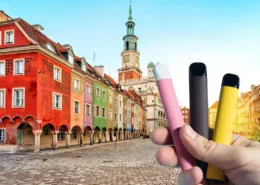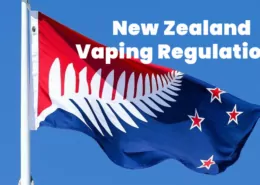New Zealand Bans Cigarettes for Future Generations
New Zealand has announced a plan to ban cigarette sales to anyone born after 2008, effectively phasing out smoking for future generations. The law, expected to take effect next year, is part of a comprehensive strategy to reduce smoking rates and improve public health.
A Bold Step Toward a Smoke-Free Future
Health Minister Dr. Ayesha Verrall emphasized the goal of preventing young people from starting smoking. “We want to ensure that young people never start smoking,” she said. The initiative includes reducing the number of retailers authorized to sell tobacco from 8,000 to just 500 and restricting nicotine levels in cigarettes.
Health experts have praised the move. Prof. Janet Hoek from the University of Otago noted, “These reforms will help people quit or switch to less harmful products and make it much less likely for young people to become addicted to nicotine.”
Mixed Reactions from the Public
While many support the ban, concerns about unintended consequences have emerged. One local resident told Reuters, “It’s a good move because too many young kids are smoking. It’ll also help me save money.” However, critics warn the ban could fuel a black market for tobacco.
Sunny Kaushal, chairman of the Dairy and Business Owners Group, expressed skepticism: “This is 100% theory and 0% substance. Gangs and criminals will fill the gap, leading to a crime wave.” The government acknowledges the risk, stating that customs will need additional resources to enforce border controls.
Addressing Health Disparities
New Zealand aims to reduce its national smoking rate to 5% by 2025, with the ultimate goal of eliminating smoking entirely. Currently, 13% of adults smoke, with rates soaring to nearly a third among the indigenous Māori population. Smoking-related illnesses disproportionately affect Māori, contributing to higher rates of disease and death.
The health ministry reports that smoking causes one in four cancers and remains the leading cause of preventable death in the country. The new measures aim to address these disparities and improve overall public health.
Vaping: A Controversial Alternative
In recent years, vaping has gained popularity among younger generations as an alternative to smoking. While New Zealand has endorsed vaping as a tool to help smokers quit, health authorities caution that it is not without risks. Research has identified hazardous, cancer-causing agents in some e-cigarette liquids.
Despite these concerns, the government adopted vaping in 2017 as part of its harm reduction strategy. The new tobacco controls aim to strike a balance between reducing smoking rates and minimizing the risks associated with alternative nicotine products.
- Cambodia: Phnom Penh Bans Smoking & Vaping on “Walk Street” - August 16, 2025
- Mexico City Congress Approves Ban on Vapes & E-Cigs - August 16, 2025
- Is It Illegal to Vape or Smoke While Driving in Minnesota? - August 15, 2025









